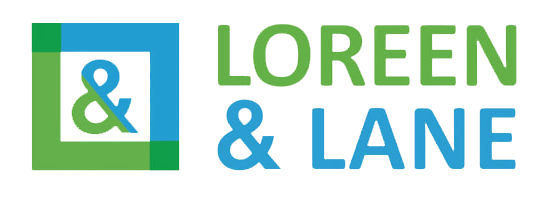Medicare is a vital healthcare program that serves as a safety net for millions of Americans, ensuring access to essential medical services. Among those who benefit from this program are stroke patients, who often require extensive medical care to recover and manage their condition. In this article, we will delve into what Medicare covers for stroke patients. Understanding the scope of Medicare coverage can help individuals and their families make informed decisions about their healthcare needs and financial planning.
I. The Basics of Medicare
Before we explore the specifics of what Medicare covers for stroke patients, it’s important to have a basic understanding of Medicare itself. Medicare, a federally sponsored health insurance program, mainly covers those over the age of 65. It also covers younger individuals with specific disabilities, including those who have suffered a stroke. Medicare is divided into several parts, each with its own coverage areas:
Medicare Part A: This includes certain home health services, skilled nursing facilities, hospice care, and inpatient hospital care.
Medicare Part B: This covers outpatient medical services, preventive care, and medically necessary services and supplies.
Medicare Part C (Medicare Advantage): This is an alternative to traditional Medicare and provides coverage for Part A and Part B services, often with additional benefits like prescription drug coverage.
Medicare Part D: This is the prescription drug coverage portion of Medicare, which can be added to Original Medicare (Part A and Part B) or included in a Medicare Advantage plan.
II. Medicare Coverage for Stroke Patients
A stroke is a life-altering medical event, and the treatment and recovery process can be long and arduous. Fortunately, Medicare provides extensive coverage to help stroke patients receive the care they need to regain their health and independence. Here are the key aspects of Medicare coverage for stroke patients:
Hospitalization (Medicare Part A): When a stroke patient requires hospitalization, Medicare Part A typically covers the costs associated with inpatient care. This includes room and board, nursing care, and most medical supplies.
Skilled Nursing Facilities (Medicare Part A): After a stroke, some patients may require rehabilitation and care in a skilled nursing facility. Medicare Part A covers a portion of these costs, provided certain criteria are met.
Home Health Care (Medicare Part A and Part B): Medicare offers coverage for home health care services, such as physical therapy, occupational therapy, and speech-language pathology services. These services are essential for stroke patients in their journey to recovery.
Outpatient Services (Medicare Part B): Medicare Part B covers a wide range of outpatient services, including doctor’s visits, diagnostic tests, and therapy sessions. Stroke patients often require frequent medical appointments and therapy to monitor and manage their condition.
Rehabilitative Services (Medicare Part B): Rehabilitation is a critical component of stroke recovery. Medicare Part B covers rehabilitation services, including physical therapy, occupational therapy, and speech therapy, which are crucial for stroke patients.
Durable Medical Equipment (Medicare Part B): Medicare Part B may cover the cost of durable medical equipment (DME) such as wheelchairs, mobility aids, and communication devices. These items can greatly enhance the quality of life for stroke patients.
Prescription Drugs (Medicare Part D): Stroke patients may require prescription medications to manage conditions like high blood pressure and prevent future strokes. Medicare Part D provides coverage for prescription drugs, which can significantly reduce the financial burden of medication costs.
Preventive Services (Medicare Part B): Medicare Part B also covers a range of preventive services, such as blood pressure monitoring, cholesterol screenings, and flu vaccinations. These services are crucial for stroke patients in managing their risk factors and preventing future strokes.
Mental Health Services: Stroke patients may experience emotional and psychological challenges. Medicare provides coverage for mental health services, including counseling and therapy, to help patients cope with the emotional impact of their condition.
Counseling and Support Groups: Medicare covers counseling services and support groups, which can be invaluable for stroke patients and their families as they navigate the challenges of recovery and adjustment.
III. Medicare Advantage Plans for Stroke Patients
In addition to the traditional Medicare program, stroke patients have the option to choose Medicare Advantage plans (Medicare Part C). Private insurance firms are providing these programs as an alternate method of receiving Medicare benefits. Some Medicare Advantage plans may offer additional benefits, such as dental, vision, and hearing coverage, which can be particularly helpful for stroke patients who may have specific healthcare needs related to these areas.
Furthermore, Medicare Advantage plans often include prescription drug coverage (Medicare Part D), making it a comprehensive choice for stroke patients who require ongoing medications.
IV. Special Considerations for Stroke Patients
While Medicare offers extensive coverage for stroke patients, there are some special considerations to keep in mind:
Medically Necessary Services: Medicare covers services that are deemed medically necessary for stroke patients. It’s important to work closely with healthcare providers to ensure that all services and treatments are considered medically necessary to maximize coverage.
Coverage Limits: Some services may have coverage limits, such as a maximum number of therapy sessions or a specific duration of skilled nursing care. It’s critical to be aware of these restrictions and make appropriate plans.
Medicare Part B Premiums: While most individuals do not pay a premium for Medicare Part A, there is a monthly premium for Medicare Part B. The amount of this premium is based on the beneficiary’s income. Stroke patients should be aware of their Part B premium and its potential impact on their budget.
Enrollment Periods: Stroke patients who are new to Medicare should be mindful of the initial enrollment period and open enrollment periods. Missing these windows may result in penalties or delays in coverage.
Coordination of Benefits: If stroke patients have other healthcare coverage, such as through an employer or Medicaid, there may be coordination of benefits to consider. This ensures that the primary payer covers costs first before Medicare steps in.
Choosing the Right Plan: Stroke patients should carefully evaluate their healthcare needs and budget when choosing between Original Medicare and Medicare Advantage. The right plan can make a significant difference in terms of coverage and costs.

Conclusion
Planning for retirement is a significant step in securing your financial future and peace of mind. The Retirement Answer Team is here to guide you through this crucial journey. Our experts are well-equipped to help you find a retirement plan that suits your unique needs and goals.
Don’t let uncertainty or confusion hold you back from making informed decisions about your retirement. Take the next step towards a more secure and comfortable future.
Contact the Retirement Answer Team today to explore your options, get answers to your questions, and embark on the path to a worry-free retirement. Our dedicated agents are ready to assist you every step of the way. Your retirement deserves the attention and expertise that only our team can provide.
Secure your retirement with confidence; reach out to us now and let us help you shape your ideal retirement plan. Your future self will thank you.

